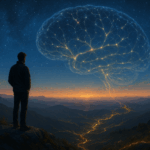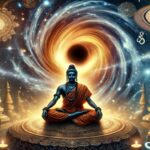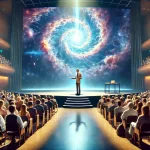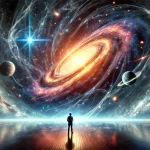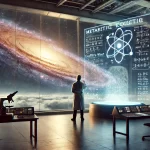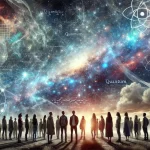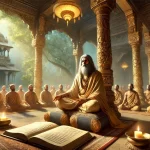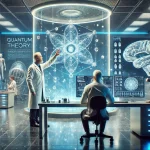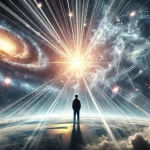The Kardashev Scale’s Technocentric Vision of Progress The Kardashev Scale is a famous framework that ranks civilizations by their energy consumption and technological control: Type I harnesses planetary-scale energy, Type II taps the output of an entire star, and Type III commands the energy of a whole galaxy. This metric equates advancement with ever-greater […]
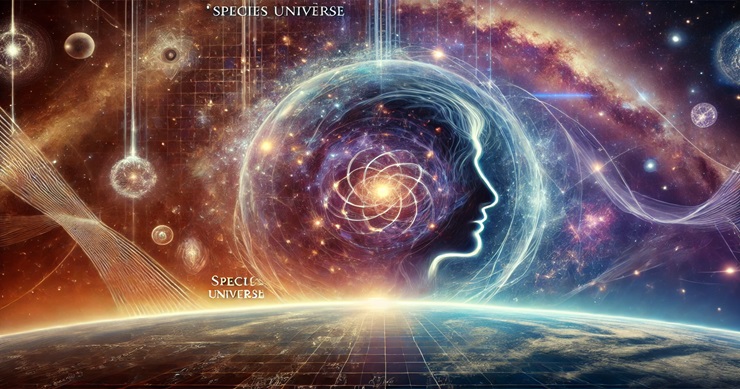
Species Universe
Welcome to the "Species Universe" category, the cornerstone of our exploration into the ultimate mystery: solving the Quantum Conundrum. This category houses articles that delve into the profound connection between consciousness and the physical realm, uniting insights from science and ancient traditions. Here, we challenge the materialistic mindset, encouraging an expanded perspective that embraces the non-physical and non-local origins of reality. Quantum Mechanics and time-honored traditions alike point to a unified source of existence, often referred to as "Nothing." By letting go of purely materialistic views, we can unlock deeper understandings and truths about our universe. This category serves as the foundation for our journey to uncover the missing link that unites all aspects of existence.
The Confluence of Vedic Jyoti and Black Hole Event Horizons
Bridging Ancient Wisdom and Modern Astrophysics through Consciousness Throughout history, humanity has sought to understand the nature of existence, exploring both the mystical and the empirical. Vedic Jyoti, a profound concept from ancient Indian wisdom, and the event horizon of a black hole, a key idea in modern astrophysics, present fascinating parallels. Vedic Jyoti […]
Eben Alexander: A Neurosurgeon’s Journey through the Afterlife
Journey Beyond the Veil | A Neurosurgeon’s Path to Divine Consciousness | Exploring Dr. Eben Alexander’s Near-Death Experience and the Quantum Connection to Eternity Dr. Eben Alexander’s transformative journey from a staunch materialist neurosurgeon to a passionate advocate for a consciousness that transcends the physical realm is as compelling as it is revolutionary. In […]
Nothing Becomes Everything | How the Universe Works
Exploring the Genesis of the Universe: From Nothingness to Cosmic Reality The video “Nothing Becomes Everything” from the “How the Universe Works” series delves into the profound question of what preceded the Big Bang. It challenges viewers to contemplate the concept of “nothingness” and how, in an instant, it transformed into the vast cosmos […]
The Universe is Alive (TheProfessorSyed)
Is the Universe Alive? | Exploring Life at the Cosmic Scale | Understanding Life, the Universe, and the Astonishing Parallels in Quantum Mechanics and Vedic Wisdom The age-old question, “Is the universe alive?” might sound purely philosophical, yet modern science, particularly quantum physics, is shedding new light on this profound inquiry. Traditionally, we identify […]
Stuart Hameroff – Does Consciousness Cause the Cosmos?
Exploring How Quantum Mechanics, Consciousness, and Cosmic Evolution Intertwine In the vast realm of scientific inquiry, few questions challenge our understanding as profoundly as the nature of reality itself. The video from Closer To Truth delves into the interplay between quantum mechanics and consciousness—a relationship that upends the conventional wisdom of space, time, and […]
Patanjali Yoga Sutras
A Comprehensive Exploration of Patanjali’s Timeless Yoga Philosophy Introduction “Unlocking the Wisdom of the Yoga Sutras: A Timeless Guide to Consciousness and Liberation” For centuries, seekers from all walks of life have turned to the Yoga Sutras of Patanjali for guidance in their quest to understand the deeper dimensions of consciousness and the nature […]
Physicists Go Hunting for Consciousness | RealClearScience
Quantum Horizons | Exploring the Immortal Dance of Consciousness | How Quantum Theory and Brain Network Dynamics Suggest a New Reality Beyond Death In the ever-evolving landscape of scientific inquiry, the boundaries between physics, neuroscience, and philosophy are increasingly blurred. Recent explorations—like those highlighted in “Physicists Go Hunting for Consciousness | RealClearScience”—invite us to […]
The World from Light’s Point of View
Exploring Dr. Peter Russell’s Vision of Light as the Genesis of Reality In a universe where the interplay of light and observation gives birth to existence, we find ourselves standing at the crossroads of science, philosophy, and ancient wisdom. This reimagined exploration delves into how light is not just a physical phenomenon, but the […]
The Quantum Experiment that Broke Reality | Space Time | PBS Digital Studios
Unveiling the Quantum Paradox: How Observation Rewrites Reality | Exploring the Double Slit Experiment and Its Radical Implications on the Nature of Existence In the ever-evolving quest to understand the universe, the double slit experiment stands as one of the most fascinating and confounding scientific endeavors. As showcased by PBS Space Time, this experiment […]
- 1
- 2
- 3
- …
- 5
- Next Page »

